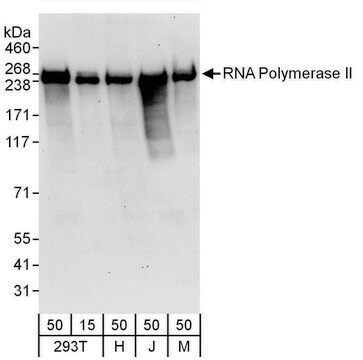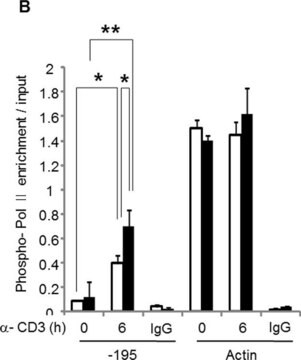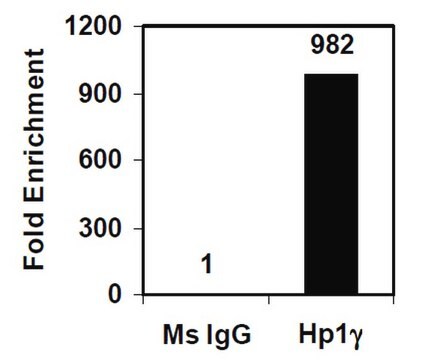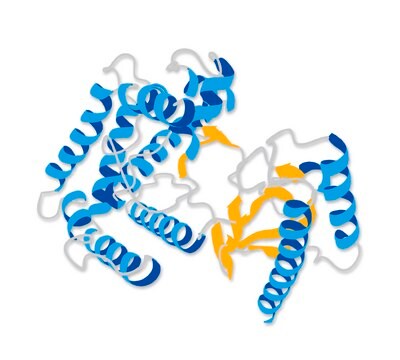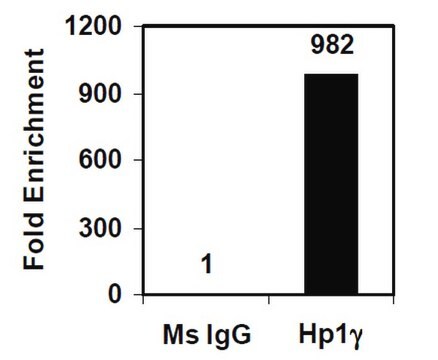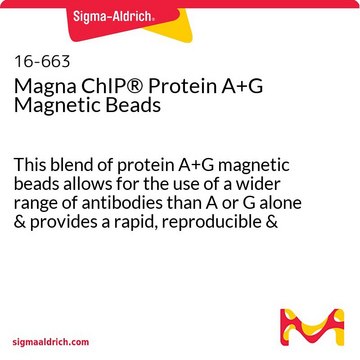CBL221
Anti-RNA Polymerase II Antibody, clone ARNA-3
ascites fluid, clone ARNA-3, Chemicon®
Synonym(e):
DNA-directed RNA polymerase II subunit RPB1, DNA-directed RNA polymerase III largest subunit, RNA polymerase II subunit B1
About This Item
Empfohlene Produkte
Biologische Quelle
mouse
Qualitätsniveau
Antikörperform
ascites fluid
Antikörper-Produkttyp
primary antibodies
Klon
ARNA-3, monoclonal
Speziesreaktivität
kangaroo, human, Drosophila
Hersteller/Markenname
Chemicon®
Methode(n)
immunohistochemistry: suitable
western blot: suitable
Isotyp
IgG1
NCBI-Hinterlegungsnummer
UniProt-Hinterlegungsnummer
Versandbedingung
wet ice
Posttranslationale Modifikation Target
unmodified
Angaben zum Gen
human ... POLR2A(5430)
Allgemeine Beschreibung
Spezifität
Immunogen
Anwendung
Immunohistochemistry: 1:100; Frozen tissue; fixation recommendation - incubate tissue with 2% paraformaldehyde in PBS for 10 min, wash in PBS for 5 min, incubate in 0.2% Triton X-100 in PBS for 5 min, wash in PBS for 5 min. Incubate with antibody one hour.
Optimal working dilutions must be determined by the end user.
Physikalische Form
Hinweis zur Analyse
Positive for drosophila, kangaroo kidney epithelial cell line PtK2, and human HeLa and HEp-2 cell lines.
Rechtliche Hinweise
Sie haben nicht das passende Produkt gefunden?
Probieren Sie unser Produkt-Auswahlhilfe. aus.
Lagerklassenschlüssel
10 - Combustible liquids
WGK
WGK 1
Analysenzertifikate (COA)
Suchen Sie nach Analysenzertifikate (COA), indem Sie die Lot-/Chargennummer des Produkts eingeben. Lot- und Chargennummern sind auf dem Produktetikett hinter den Wörtern ‘Lot’ oder ‘Batch’ (Lot oder Charge) zu finden.
Besitzen Sie dieses Produkt bereits?
In der Dokumentenbibliothek finden Sie die Dokumentation zu den Produkten, die Sie kürzlich erworben haben.
Unser Team von Wissenschaftlern verfügt über Erfahrung in allen Forschungsbereichen einschließlich Life Science, Materialwissenschaften, chemischer Synthese, Chromatographie, Analytik und vielen mehr..
Setzen Sie sich mit dem technischen Dienst in Verbindung.
